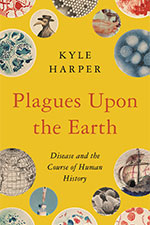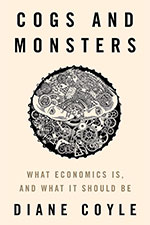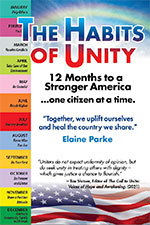 Verdict: Touchdown!
Verdict: Touchdown!
Plagues Upon the Earth: Disease and the Curse of Human History
By Kyle Harper (Princeton, NJ: Princeton Univ. Press, 2021). 704 pgs. $35. Order,
www.amazon.com.
Reviewed by James Davies
Plagues Upon the Earth: Disease and the Course of HumanHistory, by Kyle Harper, takes readers on a detailed journey tracing the interplay between human development and human beings’ large cohort of parasites and infectious diseases.
I particularly enjoyed the author’s ability to convey complex and obviously well-researched topics in an easy-to-read conversational writing style. Speaking of well researched,
Plagues Upon the Earth has 58 pages of insightful and sometimes humorous endnotes, as well as an extensive references section including citations ranging from Ibn Khaldūn’s,
The Maquaddimah: An Introduction to History, originally published in 1377, to the latest scientific research.
I also enjoyed the rich details woven deftly into the larger narrative. For example, I was surprised to learn that Cotton Mather carried out one of the first mass inoculations against smallpox in the United States using a technique he learned from the enslaved man Onesimus and that Alfred Wallace, the co-discoverer of evolution, was fiercely opposed to vaccination and inoculation.
Want to Review a Book?
Please request a book and
writing guidelines from Wisconsin Lawyer managing editor Karlé Lester, at
klester@wisbar.org or (608) 250-6127. Reviewers may keep the book reviewed. Reviews of about 500 words are due within 45 days of receiving the book. Reviews are published, space permitting, in the order received and may be edited for length and clarity.
Plagues Upon the Earth is also a welcome departure from the many macro-history books that try to cover both the full breadth and depth of human history. Harper does the reader a great service by picking a lens, the lens of human disease interactions, through which to tell his macro history. This perspective is especially relevant given the COVID-19 pandemic, which Harper briefly touches on at the end of the book.
From the legal perspective, especially considering litigation surrounding COVID-19 restrictions and mandates, it is interesting to follow the interplay of state power and individual rights from western Europe’s passage through the health transition in the mid-17th century up to today. In short, debates like the recent ones around COVID-19 restrictions and requirements have been going on for a very long time. More theoretically, the author ties the control of infectious disease to growth in government power. I found both of these historical perspectives illuminating in analyzing recent debates and litigation surrounding COVID-19.
Plagues Upon the Earth is a well-researched, accessible, informative, and enjoyable read. I give away or donate most of the books I read, but this one is getting a permanent spot on my bookshelf.
James Davies, Florida 2012, is the executive director of Bublr Bikes, Milwaukee’s nonprofit bike-share company.
 Verdict: It’s a Keeper
Verdict: It’s a Keeper
Cogs and Monsters: What Economics Is, and What It Should Be
By Diane Coyle (Princeton, NJ: Princeton Univ. Press, 2021). 272 pgs. $24.95. Order,
www.amazon.com.
Reviewed by Leonard W. Wang
Cogs and Monsters presents a valuable, detailed analysis of much of the current economic thinking used in making and administering public policy. Author Diane Coyle, an economist and professor at Cambridge University in England, criticizes the economics theories and methodologies often employed in public policy and government regulation, for being too narrowly focused on costs and benefits that are easily measured in an environment incorrectly assumed to be static and for not encompassing externalities and other factors in well-being that are less readily captured in statistics.
Coyle espouses a broader vision for the use of economics in government that recognizes economic policy operates dynamically and itself changes the behavior to which it applies, thus producing unintended consequences. She contends that economists should eschew claims that economics can be entirely objective and apolitical and should acknowledge that much of economics entails biases and value judgments. For example, Coyle points out that gross domestic product (GDP) and gross national product (GNP) do not incorporate the benefits and costs of social change such as the flow of women into the work force during World War II, out after the war, and back in starting in the mid-1960s. That limits the usefulness of GDP and GNP as measures of well-being.
Coyle proposes that economists give fuller recognition to the normative aspects of their work and adopt an outlook closer to the notion of political economy found in much 18th- and 19th-century economics thought. She in particular contends that the evolving digital economy of the 21st century, with its cross-currents of populism, economic inequality, clamors for social equity, and debates over digital privacy, requires an expansive vision of economics in which pure market solutions and comprehensive government mandates are both viewed cautiously.
Cogs and Monsters endeavors to address an important question: How should policy makers reach decisions? More holistic advice and recommendations from economists would be welcome. Coyle does not offer a detailed prescription for how economists and policy makers should proceed, instead generally urging that market forces and governmental authority be flexibly and pragmatically applied as circumstances warrant. This makes sense on a conceptual level, but policy makers working in the here and now need detailed guidance from economists and other scholars and researchers, and the problem of how to navigate the fog of governance remains difficult.
Lawyers involved in making or administering public policy would benefit from reading
Cogs and Monsters, as would scholars studying law and economics. The first two chapters of the book may be challenging for those unfamiliar with higher-level economics. You can still get a lot from the book if you skip to chapter 3 and go forward from there. It’s a keeper.
Leonard W. Wang, U.W. 1978, practiced banking and commercial law and also worked for more than 22 years at the U.S. Securities and Exchange Commission in Washington, D.C. He is retired from the SEC and now writes about legal matters for Bloomberg LP’s The Bureau of National Affairs Inc.
 Verdict: Not for Me, Maybe for You
Verdict: Not for Me, Maybe for You
The Habits of Unity: 12 Months to a Stronger America
By Elaine Parke (Parker, CO: Outskirts Press Inc., 2021) 314 pgs. $21.57. Order,
www.amazon.com.
Reviewed by Dianne Post
Author Elaine Parke developed her self-help program after a successful career in advertising. She’s been at it for 30 years; thus negating the title immediately. The book outlines a daily program of activities meant to create new and better habits. It’s tied up with colors and crafts for each month along with daily affirmations and actions or thoughts. Nothing is new. It’s filled with clichés and things you should have learned in kindergarten. It’s a mashup of yoga, meditation, religion, focus, habit, the golden rule, and Native American lore. Certainly many people, especially busy lawyers who are often stressed out of our minds, could use some of this. Getting off screens and away from our phones could be helpful, too. In Canada, physicians are handing out free tickets to the national parks and suggesting a walk in the great outdoors for mental health.
The author focuses on more community and less striving for things – which I wholly subscribe to as well. Residents of the United States score low on the happiness index so we could use that. Many of the suggested action items have to do with cooking and baking. But today you can’t even bake cupcakes and take them to your child’s school classroom, and children have been arrested for selling lemonade at street curbs. Parke highlights her work in Rwanda. Given that President Kagame has jailed Paul Rusesabagina (the subject of the movie
Hotel Rwanda) for telling the truth about his dictatorial regime, there appear to still be problems in that nation.
Being kind is good – we need more of that. But I disagree with Parke’s claim that anger is bad. We should not be ashamed of being angry. As lawyers, we are often angry at injustice; it is why we do what we do. Since the summer of George Floyd and Black Lives Matter, many groups arose who are wearing orange and talking about love. That’s all good, but more Blacks were shot by police in the United States in 2021 than in the year before. “Thoughts and prayers” haven’t ended school shootings, either.
The material in this book could be useful for focusing on a more positive future especially with children. It might be a good way to get started if you haven’t tried any of these techniques before.
Dianne Post, 1979 U.W., did family law representing battered women and children for 18 years and then started working internationally on violence issues.
